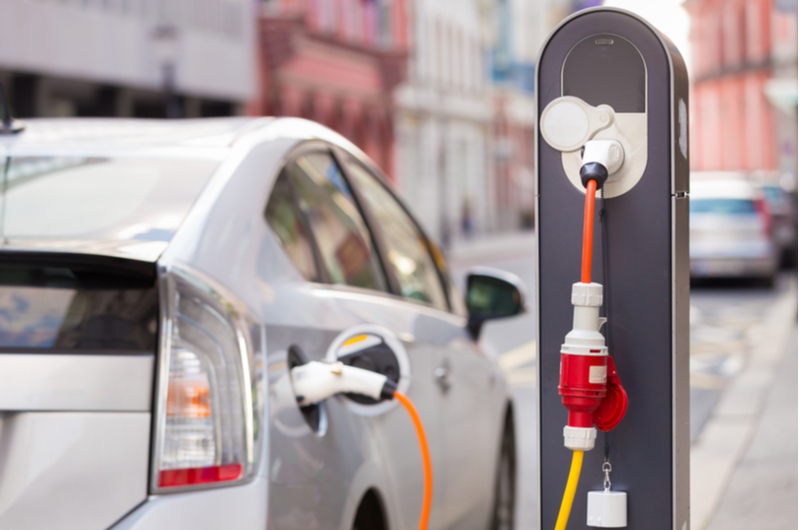Hybrid Cars vs. Fuel-Dependent Cars
As society becomes aware of climate change, people have been inquiring about these changes and how to slow them down. Fortunately, hybrid cars can be a way to slow down climate change. Although there needs to greater efforts to improve climate change, this can be a step in the right direction.Fuel-dependent cars are less expensive than hybrid vehicles, but hybrids have greater benefits. For instance, the government provides tax incentives to those buying a hybrid vehicle. To learn how hybrid vehicles compare to their fuel-dependent counterparts, read the sections below.
Cleaner Energy
Hybrid cars are known to run cleaner and have better gas mileage. Compared to fuel-dependent cars, hybrids are more environmentally friendly. The reason these cars run cleaner is because of their engine and motor. The engine is a gas-dependent combustion engine and the motor is electrical. The electrical motor is primarily used, and the gas engine is used as a backup.
The best hybrid cars do not rely too much on the gas and will use the electrical motor. The best hybrids also have additional smart car features such as cruise control and a good navigation system. However, the ideal features in a hybrid car will vary, depending on your needs.

Regenerative Breaking
This energy-saving feature is unique to hybrid vehicles. The energy that is produced while braking is captured and fed into the battery. The charge to the battery increases the charge available in the electric motor. This is, in turn, reduces fuel consumption. Regenerative braking can also increase the life of your brakes.
Plug in hybrid cars (PHEV) are an interesting case because they receive energy from an external source. But regenerative braking can be beneficial for this vehicle. If you decide you want to buy a plug-in vehicle, this mechanism saves you time from having to recharge your battery periodically.
Weight Saving
Whether they are PHEV or luxury hybrid cars, hybrids are always constructed with lightweight materials. The lightweight components of the car help reduce energy consumption. A fuel-dependent car that is built with full-weight materials not only pollute the environment but will waste energy. Lightweight cars are often made of carbon fiber, glass fiber, aluminum and high strength steel. This fortifies the car without encumbering and forcing it to use more energy.
The engines in hybrid vehicles are also smaller and light, which also reduce energy usage. The smaller combustion engine is a result of not being the sole power source. With addition of the electrical motor, you will not have to fill up on gas as much.
Reduced Fuel Dependence
Although hybrid cars rely on fuel, they do not need to use it as much as their fuel dependent counterparts. Because these vehicles do not require as much fuel, they create less emissions into the atmosphere. The electrical motor with its regenerative braking mechanism means less dependence on gasoline. Another positive side effect is spending less money on gasoline.
The existence of hybrid vehicles also keeps gas prices in check. The high dependence on gasoline of combustion engine cars allows petroleum prices to continue to rise. Electric hybrid cars have gained popularity as individuals have become more environmentally conscious. Thus, individuals controlling the gas prices will be forced to lower them to continue making a profit.
Higher Resale Value
The increase in gas prices has also convinced drivers to buy hybrid cars. This has resulted in sellers demanding more for reselling their hybrid vehicle. But there are other reasons why sellers are placing a high price on their used vehicle. What often controls the resale value of a car is the brand and the demand. There is already a demand for hybrids with rising gas costs. If the brand of the car is high-end, it can also boost the price.
However, certain hybrids may cost more to maintain. For instance, the build for a hybrid car is unique, thus making the upkeep more expensive. Luxury hybrid cars may also require you to sink more money into them than non-luxury hybrids solely because of the brand. It is important to keep this in mind when deciding to buy a used hybrid. Also, if you plan to resell your hybrid, the market in the future may not support a higher markup price.
Government Incentives
The federal U.S. government and certain states are providing financial incentives for buying hybrid cars. The government will give tax credits to individuals to lower upfront costs of the hybrid car. The IRS will be giving a tax credit between $2,500 to $7,500 per new hybrid car purchase.
It is important to note that this is specifically for plug-in hybrids only. Hybrid vehicles that do not require an external source to charge the battery will not receive tax credit. Furthermore, the size of the tax credit will vary depending on battery capacity and the size of the vehicle. To claim the credit, you must fill out the required forms and submit the forms with your tax information.
